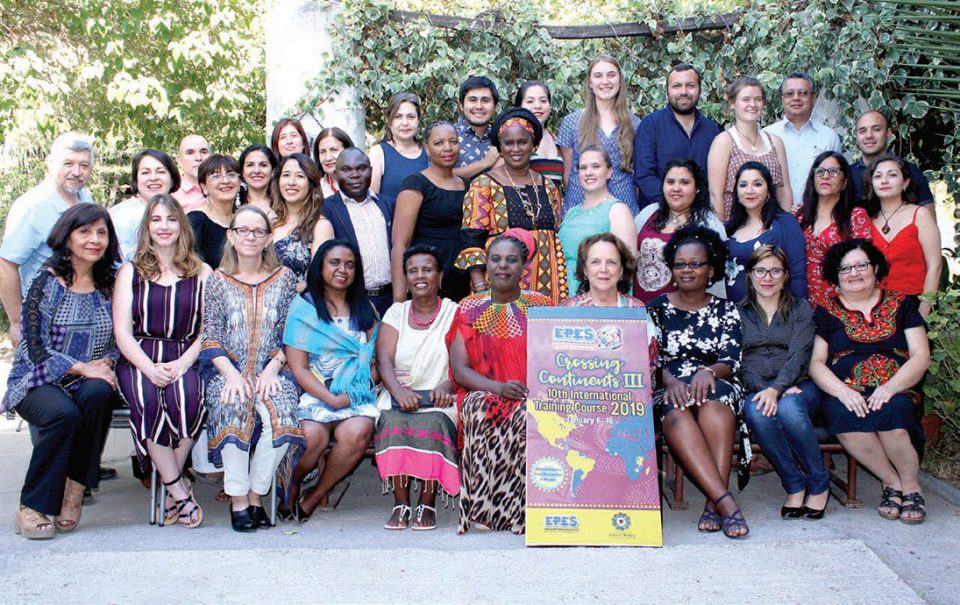In an age when globalization is often associated with corporate greed on a multinational scale, 21 people from 10 countries and three continents discovered common ground for justice in the EPES (Educación Popular En Salud) foundation’s international course on popular education for health, held earlier this year in Chile.
Health workers and community advocates from Cameroon, Ethiopia, Kenya, Madagascar, Senegal, Zimbabwe, Tanzania, Guatemala, Nicaragua, Chile and the United States came together for the 10th annual course.
This year ELCA World Hunger funded five scholarships for representatives from Lutheran companions in Africa. ELCA congregations and members provided scholarships for six additional participants. In these past 10 years, 187 people from 25 countries have participated in the training course.
“You look at unknown places on a map with a certain mistrust. You think there are strange things there,” said Chengetai Chifamba, a participant who works with an HIV prevention program in Zimbabwe, sponsored by the Lutheran Communion in Southern Africa. “But [in the course] you realize that we are the same and face the same problems—what we share is more than what separates us.” Other course participants echoed Chifamba’s sentiments.
Since its inception 37 years ago, EPES has been guided by the conviction that health is a human right. Its focus has included equitable access to public health for marginalized communities, pioneering HIV/AIDS prevention and a network combating gender-based violence.
The EPES popular education methodology offers leaders a new tool for their ministry contexts. Popular education, a concept that can be traced to Brazilian educator Paulo Freire, enables people in a marginalized community to become aware of their situation as the essential first step to changing it. Its success at tackling entrenched problems hinges upon community involvement at every step along the way, starting with identifying and prioritizing issues, envisioning change and carrying out action projects to bring about change.
Workenesh Begi, who coordinates the Tarkanfi Sustainable Development project for displaced communities of Ethiopia, appreciated the approach because “it empowers women and communities. You do not tell people what to do. The course opened my eyes and heart to that.”
Katy Ajer, ELCA program director for Health and Sustainable Development, thinks that popular education fits well within the vision of ELCA World Hunger.
“We are called upon as a church to effect real transformation,” she said. “While you can address immediate needs that exist in the world, to really work for transformation to a more just world, you need to look at the injustices, and all must have an equal voice to talk about what they know and offer their gifts they have to share. This methodology really does that.”
Lisandro Orlov, pastor of the United Evangelical Lutheran Church in Argentina and Uruguay and founder of the ecumenical HIV/AIDS pastoral group of Buenos Aires, frames EPES’ work in a theological light: “I think Jesus Christ was the first to apply popular education in health. When he instructs his disciples to listen to the blind beggar Bartimaeus and ask what he wants, instead of trying to silence him, he teaches the participatory foundation of popular education.”
Karen Anderson, an ELCA missionary in Chile, founder of EPES and director of the school, said she remains grateful for the ELCA’s ongoing support of this annual training program. She hopes it will “help expand and strengthen community and participatory experiences for social change that work to build a more just and compassionate world.”






